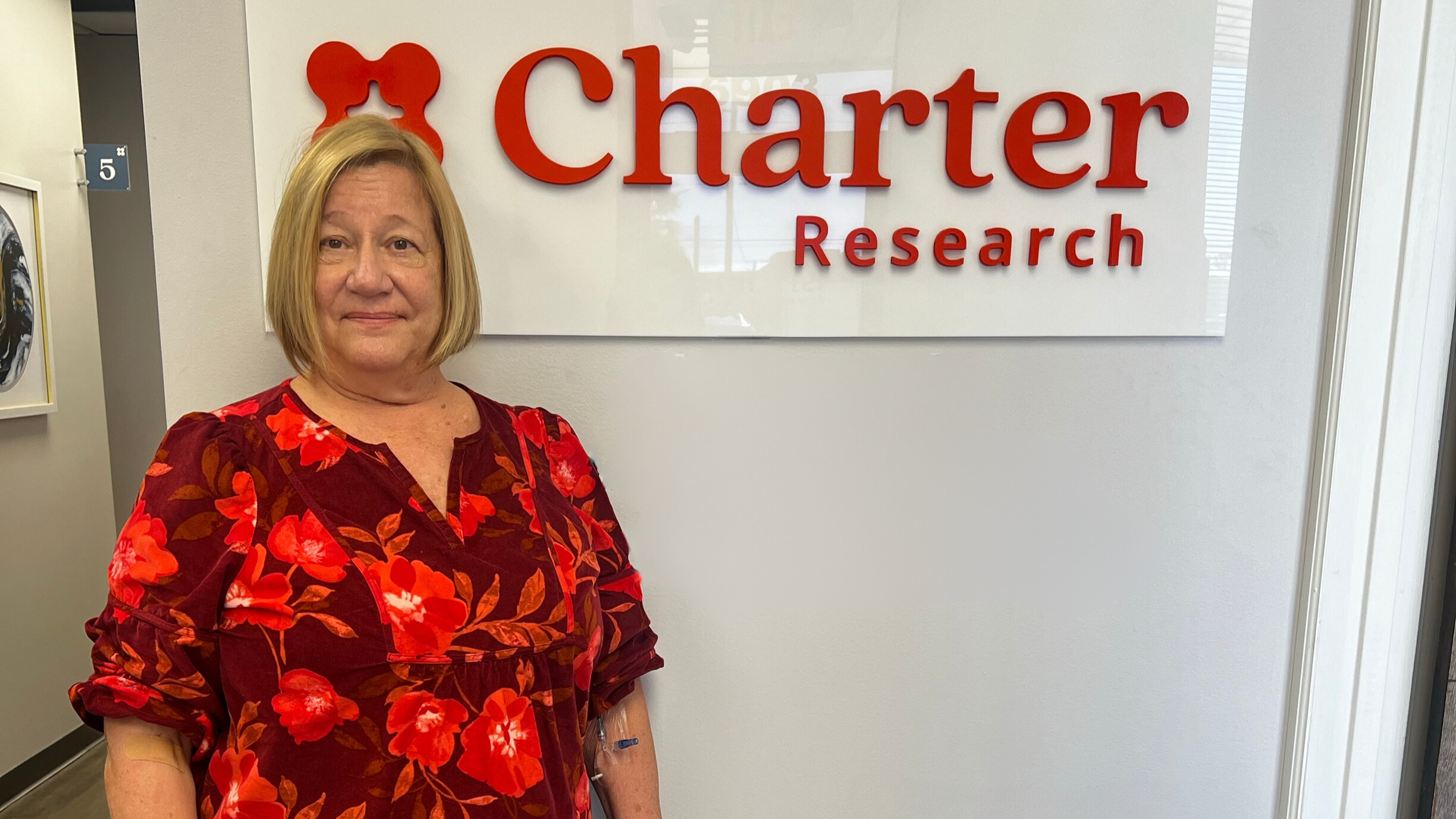Both Her Parents Had Dementia. So She’s Taking the Fight Back By Participating in a Clinical Trial.
In July of 2023, Eisai and Biogen’s anti-amyloid drug Leqembi was fully approved by the FDA for treating the early stages of Alzheimer’s. Unlike the other Alzheimer’s treatments on the market, Leqembi isn’t a band-aid approach to treating the disease’s symptoms: It has the potential to slow its progression through the brain.
Now, a clinical trial called the Phase 3 AHEAD trial is testing whether Leqembi can prevent the onset of Alzheimer’s altogether. Trial participants are cognitively healthy older people aged 55 to 80 who have amyloid plaque buildup in their brains putting them at risk of developing the disease.
Winter Springs, Florida resident Penny Robertson, 72, is among this group. Now, through participating in Phase 3 AHEAD, she sees an opportunity to help fight back against this disease that likely affected her parents decades earlier.
How Robertson learned she was at risk of developing Alzheimer’s
About two decades ago, Robertson started seeing more and more information about Alzheimer’s in the news. Brown University’s Dr. Stephen Salloway was regularly featured in news articles. He also gave a number of talks at senior centers about the importance of early diagnosis and treatment.
As she learned more about the disease, Robertson said that she began to recognize she was also at risk of developing Alzheimer’s. As many people age, they may experience some normal decline in their cognitive ability. For Robertson, she noticed a decline in her multitasking ability, making her anxious.
The importance of a healthy lifestyle
Using what she learned from Alzheimer’s researchers, Robertson worked to reduce her risk of developing the disease by addressing other risk factors. For example, she goes swimming and has a bustling social life.
“I moved down to Florida a couple of years ago, and I’ve met this wonderful group of friends through my church,” Robertson said. “They got me involved in volunteer work at a memory care unit, and I love doing it.”
There, she also interacts with other people with dementia by organizing different activities and playing music to stimulate their memories.
The most fantastic thing, Robertson explained, was watching people with dementia that made it difficult to speak start singing along to familiar tunes from the 1950s, without missing a beat.
Despite her healthy lifestyle, Robertson still knew that she was at risk of developing the disease that affected her parents, so she decided to see if she was eligible for any clinical trials.
What it’s like to participate in the AHEAD trial
Robertson signed up to see if she would be a fit for the AHEAD trial.
To determine her eligibility for the trial, she worked with trial administrators in a screening process that took about six months. This process included drawing blood to look for biomarkers, as well as genetic testing, imaging, and cognitive testing. Trial administrators were looking to understand, through these tests, that she was still cognitively healthy, but that she did have beta-amyloid plaques in her brain—a hallmark of Alzheimer’s disease.
At the end of the screening process, Robertson learned she was eligible to join the trial. As a participant, she will receive an intravenous infusion every two weeks at the clinical trial center for 96 weeks, and then infusions every four weeks for just over two years. But she won’t know if she received the drug, Leqembi, or the placebo, until the end of the trial.
Researchers will study the plaques in her brain, her cognitive abilities, and other markers over these two years to understand what affects the infusion had. Then, they’ll look across all trial participants and compare the outcomes for the people who had the placebo, versus the people who had the drug, to understand how much a difference Leqembi might make in preventing the onset of Alzheimer’s disease.
What’s it like to participate in this scientific research process? Robertson likens her infusions at the clinical trial center to spa days. She said gets the opportunity to interact and socialize with the study staff and other participants—while helping scientists learn more about a new Alzheimer’s treatment.
“I feel like we’re part of an important community,” she said of the trial participant group, “and I find myself less anxious about all those words I sometimes can’t recall.”
